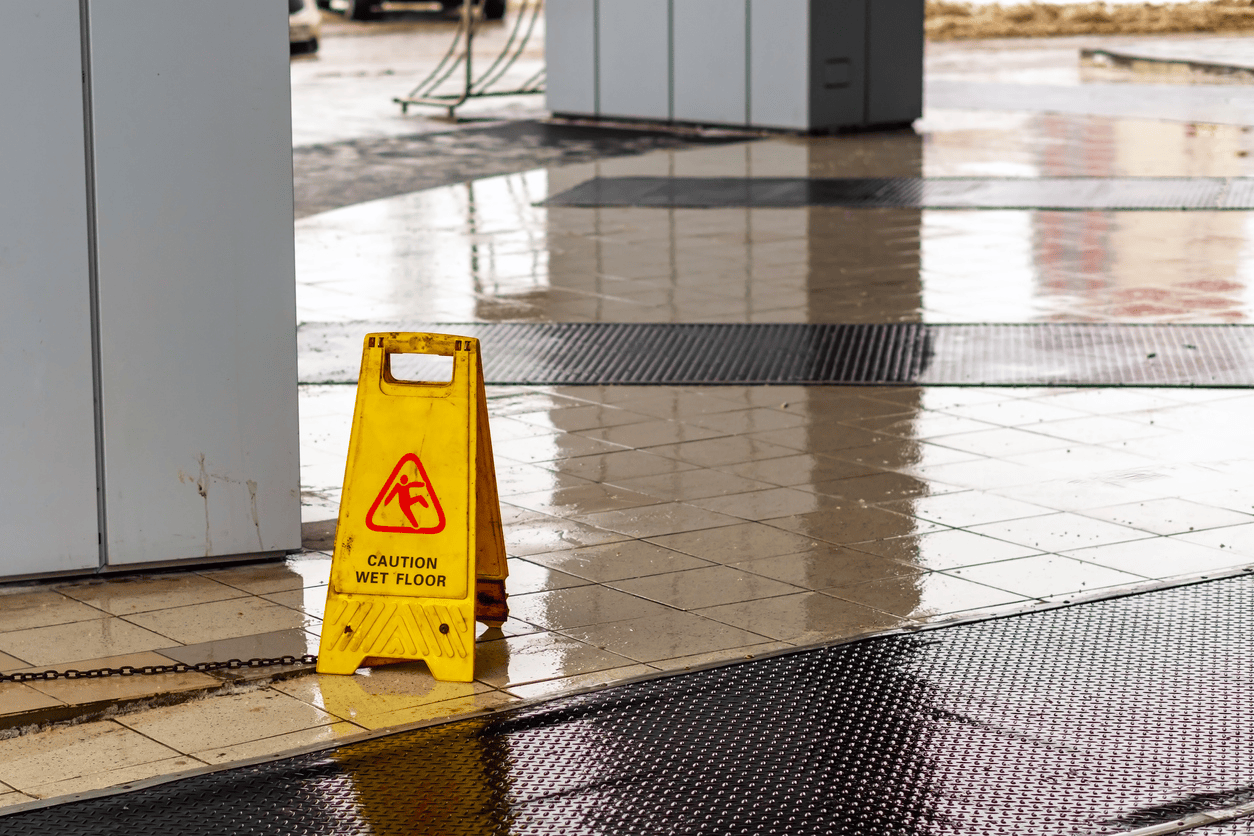
Heat exhaustion is a significant concern, especially for workers in high-risk environments like construction sites, factories, and outdoor locations. As temperatures rise, so does the risk of heat-related illnesses. If you’ve suffered from heat exhaustion at work, you might be wondering, “Can I sue my employer for heat exhaustion?” This article will guide you through the common causes of workplace heat exhaustion, how to identify it, and when and how you might hold your employer responsible.
Understanding Heat Exhaustion in the Workplace
Heat exhaustion is a serious condition that can affect workers exposed to high temperatures, particularly during the summer months. It is a type of heat-related illness that occurs when the body overheats due to prolonged exposure to high temperatures and insufficient hydration. While anyone can be at risk, certain groups of workers, such as construction workers, factory workers, and outdoor workers, are particularly vulnerable to heat-related injuries.
Common Causes of Heat Exhaustion in the Workplace
Heat exhaustion in the workplace can be caused by various factors, including:
High Temperatures: Working in environments with high temperatures, especially without adequate cooling measures like air conditioning or fans, increases the risk.
High Humidity: High humidity levels can prevent sweat from evaporating, hindering the body’s ability to cool down.
Physical Activity: Engaging in strenuous physical activities or labor-intensive tasks can raise body temperature.
Insufficient Hydration: Not drinking enough water or fluids can lead to dehydration, exacerbating heat-related issues.
Inadequate Rest Breaks: Lack of frequent breaks to cool down and rehydrate can contribute to heat exhaustion.
Protective Clothing: Wearing heavy or non-breathable protective clothing can trap heat and increase body temperature.
Identifying the Signs of Workplace Heat Exhaustion
Recognizing the signs of heat exhaustion is crucial for preventing serious health consequences. Common symptoms include:
Heavy sweating
Weakness or fatigue
Dizziness or fainting (heat syncope)
Nausea or vomiting
Headache
Muscle cramps (heat cramps)
Cool, moist skin with goosebumps
Rapid heartbeat
If left untreated, heat exhaustion can progress to heat stroke, a potentially life-threatening condition that requires immediate medical attention. Heat stroke symptoms include confusion, loss of consciousness, and a body temperature above 103°F.
Who Is Responsible for Heat Exhaustion in the Workplace?
Employers have a legal obligation to provide a safe working environment for their employees. This responsibility includes taking measures to protect workers from extreme heat and heat-related illnesses. The Occupational Safety and Health Administration (OSHA) sets guidelines and standards to help employers ensure workplace safety, including:
Providing adequate hydration (cool water)
Implementing rest breaks in shaded or air-conditioned areas
Monitoring workers for signs of heat-related illnesses
Training employees on the risks and prevention of heat stress
Adjusting work schedules during extreme heat
Can I Sue My Employer for Heat Exhaustion?
If you have suffered from heat exhaustion due to your employer’s negligence in providing a safe working environment, you may have grounds to file a lawsuit. However, most workplace injuries, including heat-related injuries, are typically handled through the workers compensation system rather than through personal injury lawsuits.
When Can I Sue My Employer for Heat Exhaustion?
You can sue your employer for heat exhaustion if:
Negligence: Your employer was negligent in providing a safe workplace. This includes not implementing safety measures to prevent heat exhaustion.
Violation of OSHA Regulations: Your employer violated OSHA standards related to heat safety.
Inadequate Training: You were not properly trained on how to prevent and recognize heat-related illnesses.
Failure to Provide Adequate Breaks: Your employer did not allow sufficient breaks for rest and hydration during periods of extreme heat.
How Can I Sue My Employer for Heat Exhaustion?
To sue your employer for heat exhaustion, you should take the following steps:
Seek Medical Attention Immediately: Your health is the top priority. Obtain medical care and ensure that your condition is documented.
Report the Injury: Notify your employer about your heat-related injury as soon as possible. This is crucial for both workers compensation claims and potential lawsuits.
Document Everything: Keep detailed records of the incident, including the working conditions, symptoms experienced, and medical treatments received. Collect witness statements if possible.
Consult a Workers Compensation Attorney: An experienced attorney can help you navigate the legal process, whether through filing a workers compensation claim or pursuing a lawsuit for negligence or intentional misconduct.
File a Claim: Depending on the circumstances, your attorney will help you file a workers compensation claim or a personal injury lawsuit.
Can I Receive Compensation for Heat Exhaustion Injury at Work?
Yes, you can receive compensation for heat exhaustion injuries sustained at work. Compensation can cover:
Medical Expenses: Costs of medical treatment, hospitalization, medications, and ongoing care.
Lost Wages: Compensation for income lost during recovery.
Disability Benefits: If the injury leads to temporary or permanent disability, you may be eligible for disability benefits.
Pain and Suffering: In cases of negligence or intentional misconduct, you may be awarded compensation for pain and suffering.
Workers Compensation for Heat Exhaustion
In most cases, workers compensation is the primary avenue for receiving compensation for heat exhaustion injuries. Workers compensation provides benefits to employees who suffer work-related injuries, regardless of fault. These workers compensation benefits typically include:
Medical Care: Coverage for all reasonable and necessary medical treatments related to the injury.
Temporary Disability Benefits: Payments to replace lost wages if you are unable to work temporarily due to your work related heat injury.
Permanent Disability Benefits: Compensation if the injury results in permanent impairment.
Job Retraining: Assistance in returning to work, potentially in a different capacity if you cannot resume your previous role.
Heat Exhaustion Prevention
Preventing heat exhaustion in the workplace is essential for protecting workers’ health. Employers and employees can take the following steps to reduce the risk of heat-related illnesses:
Hydration: Drinking plenty of water throughout the day, especially in hot conditions.
Rest Breaks: Taking frequent breaks in shaded or air-conditioned areas to cool down.
Proper Clothing: Wearing loose-fitting, light-colored clothing to help keep the body cool.
Acclimatization: Gradually increasing workloads and exposure to hot conditions to help the body adapt.
Education and Training: Employers should educate workers on the risks of heat stress and how to prevent heat-related illnesses.
Monitoring Conditions: Keeping an eye on weather conditions and adjusting work schedules accordingly to avoid the hottest parts of the day.
Protecting Workers from Heat-Related Work Injuries
Employers must take proactive steps to protect workers from heat-related work injuries. This includes:
Providing Adequate Hydration: Ensuring that workers have access to cool water at all times.
Scheduling Breaks: Implementing mandatory rest breaks to allow workers to cool down.
Training: Educating workers on the signs and symptoms of heat exhaustion and heat stroke, and how to respond appropriately.
Adjusting Workloads: Reducing physical activity levels during periods of extreme heat.
Monitoring: Supervising workers for signs of heat stress and responding quickly to any indications of heat illness.
How an Attorney Can Help You in Your Heat Exhaustion Case
Dealing with a legal case related to heat exhaustion at the workplace can be complex and challenging, especially when dealing with employer liability and workers’ comp laws. In such situations, having the guidance and support of an experienced attorney can make a significant difference in the outcome of your case. Here’s how an attorney can assist you throughout the process:
Understand Workers Compensation Laws: They provide expertise in workers compensation laws, helping you understand your rights and the benefits you are entitled to receive.
Evaluate Your Case: An attorney can assess the specifics of your heat exhaustion incident to determine if you have a valid claim against your employer.
Gather Evidence: They can help collect and organize necessary evidence, such as medical records, witness statements, and documentation of workplace conditions.
Ensure Compliance with Legal Procedures: An attorney ensures that all legal procedures are followed correctly, including filing deadlines and required documentation.
Negotiate with Insurance Companies: They can negotiate with your employer’s insurance company to secure a fair settlement for your medical expenses, lost wages, and other damages.
Representation in Court: If your case goes to trial, an attorney will represent you in court, presenting your case and advocating on your behalf.
Handle OSHA Complaints: An attorney can assist in filing a complaint with OSHA if there were safety violations that contributed to your heat exhaustion.
Maximize Your Compensation: They work to maximize your compensation by thoroughly evaluating all potential damages, including pain and suffering, lost earning capacity, and future medical costs.

Elevate Your Legal Journey with BLG’s Heat Exhaustion Advocates!
Heat exhaustion is a serious concern for many workers, particularly those in high-risk occupations such as construction, factory work, and outdoor labor. Employers have a legal duty to protect workers from heat illnesses by providing a safe working environment, adequate hydration, rest breaks, and proper training.
If you’ve experienced heat exhaustion at work and believe your employer may be liable, don’t hesitate to take action. BLG is here to help you navigate the legal process and fight for the compensation you deserve. Our experienced team of attorneys specializes in workers compensation cases, including those related to heat-related injuries.
Contact us today for a free consultation.
FAQs
Can heat exhaustion be a work-related injury?
Yes, heat exhaustion can be considered a work-related injury, especially if it occurs due to workplace conditions such as high temperatures, strenuous physical activity, or inadequate hydration.
How long do heat exhaustion symptoms last?
Symptoms of heat exhaustion typically last from a few hours to a couple of days, depending on the severity and the effectiveness of the treatment and recovery measures taken.
What are the four stages of heat exhaustion?
Heat exhaustion does not traditionally have four distinct stages. However, it can be categorized as mild, moderate, or severe. If left untreated, it can progress to heat stroke, which is a medical emergency. The symptoms generally include heavy sweating, weakness, cold, heat rash, pale and clammy skin, fast and weak pulse, nausea or vomiting, and fainting.
Is heat exhaustion considered an illness?
Yes, heat exhaustion is considered a medical condition resulting from prolonged heat exposure to high temperatures, often combined with dehydration, leading to various symptoms that require medical attention.





